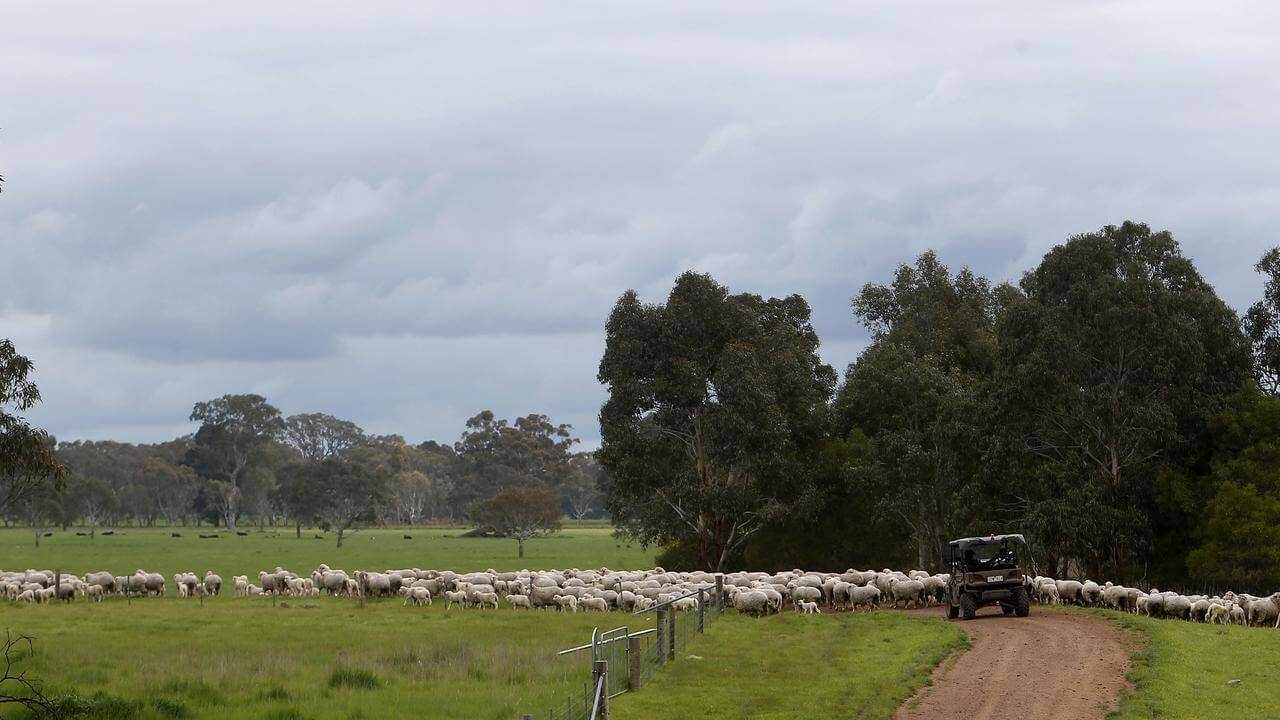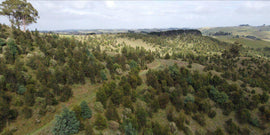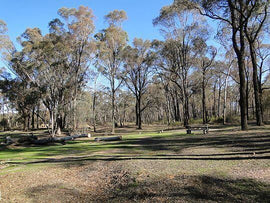Jigsaw Farms is a 4,900 hectare farm network north of Hamilton in western Victoria. Since purchasing Jigsaw Farms in 1996, owners Mark Wootton and Eve Kantor have set out to prove that productive farming and biodiversity do not need to be mutually exclusive.
They have now established more than one million trees across the farm system, with a combination of commercial forests for harvest and biodiversity forests for habitat and carbon capture. Greenfleet is pleased to be part of the Jigsaw Farms revegetation program, direct seeding 180,000 trees to recapture carbon dioxide on behalf of Greenfleet supporters.
From 2003 to 2006, Greenfleet undertook seeding projects at 10 individual farms within the Jigsaw Farms network, with some remedial seeding undertaken in 2007 and 2008 to replace losses at some sites.
More than 25% of Jigsaw Farms is now planted with forests or developed as wetlands. These areas were the least productive and degraded soils on the farm, so this action has not diminished production – in fact the production of the remaining 75% now exceeds that of the ‘before new forests’ farm.
In 2010, on top of the usual monitoring program conducted to gauge the general health of the forest, Greenfleet conducted carbon measurements on a number of the older sites at Jigsaw Farms. The results were very pleasing, with nearly 170% what was forecast by the National Carbon Accounting Toolbox. This demonstrates that these forests are well on track to meet supporter commitments before their expected time.
An ornithological assessment of the site in 1998 revealed 29 different bird species, while the repeat survey in 2008 detected more than 130 species –showing the benefits to biodiversity. But the benefits to livestock are just as pronounced – a 100 millimetre summer deluge in 2006 threatened the lives of thousands of young and freshly shorn sheep, but the animals were saved by moving them to revegetated areas for protection.
Jigsaw Farms is a fantastic example of sustainable farming practices, proving that carbon capture and biodiversity strategies do not have to be at the expense of on-farm production. Not only does the revegetation of Jigsaw Farms improve habitat for wildlife, the productive areas of the farm will now be more resilient and less exposed to climate variables.
Mark Wootton is proud of the achievements at Jigsaw Farms, “The main gain for us is that we are reducing our carbon footprint while remaining commercially focused. Our farms show that it doesn’t have to be a choice between food and forests – with well planned farms we can have both.”

Location Size
Planting Dates
Species
- Acacia mearnsii
- Acacia melanoxylon
- Acacia paradoxa
- Acacia pycnantha
- Acacia retinodes
- Acacia verniciflua
- Acacia verticillata
- Allocasuarina muelleriana
- Allocasuarina verticillata
- Banksia marginata
- Bursaria spinosa
- Callistemon rugulosis
- Dodonaeaviscosa
- Eucalyptus aromaphloia
- Eucalyptus baxteri
- Eucalyptus camaldulensis
- Eucalylptus dives
- Eucalyptus macrorhyncha
- Eucalyptus melliodora
- Eucalyptus leucoxylon
- Eucalyptus polyanthemos
- Eucalyptus obliqua
- Eucalyptus ovate
- Eucalyptus viminalis ssp. cygnetensis
- Leptospermum continentale
- Leptospermum obovatum
- Leptospermumscoparium
- Melaleuca brevifolia
- Melaleuca decussata




